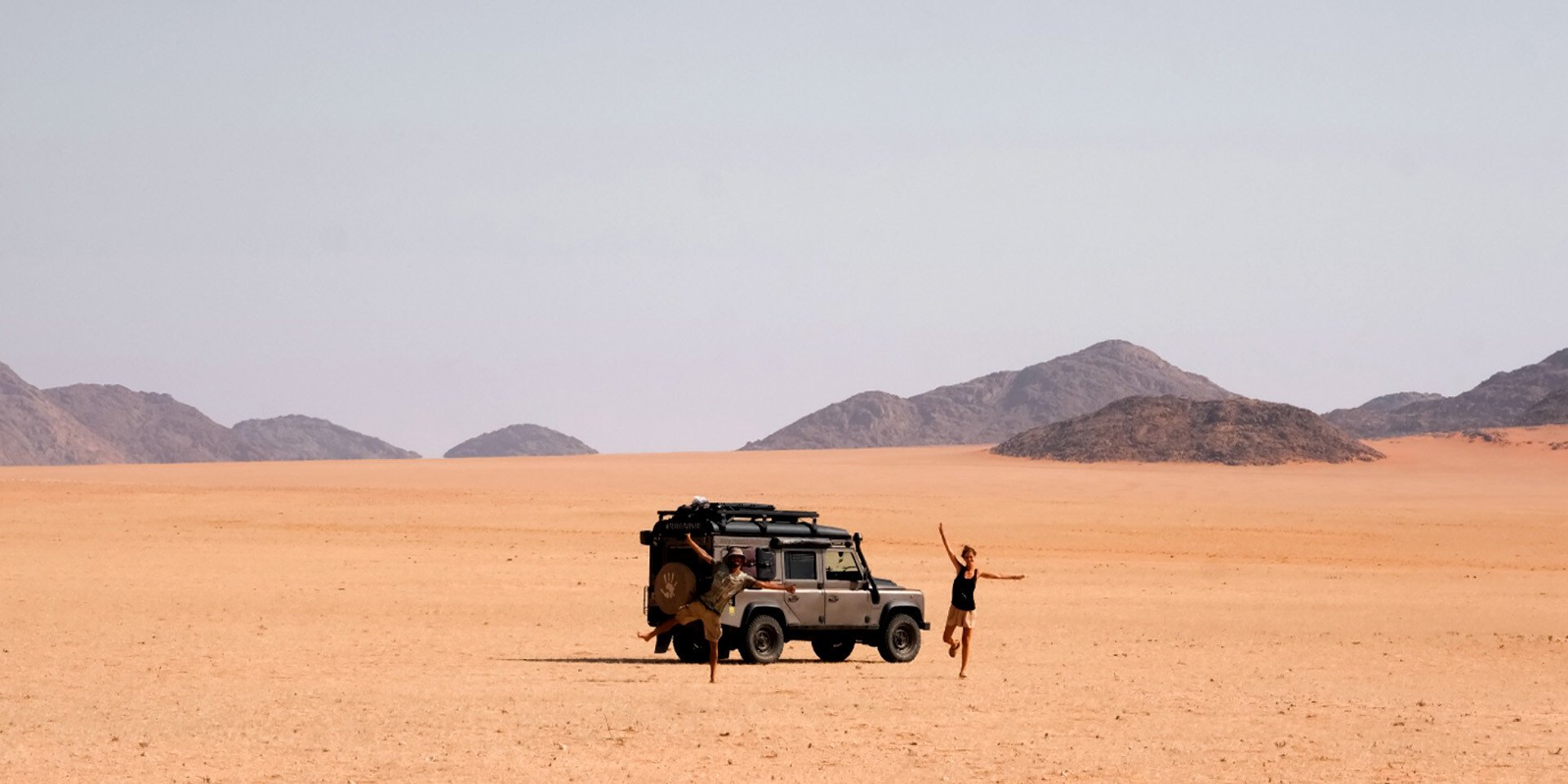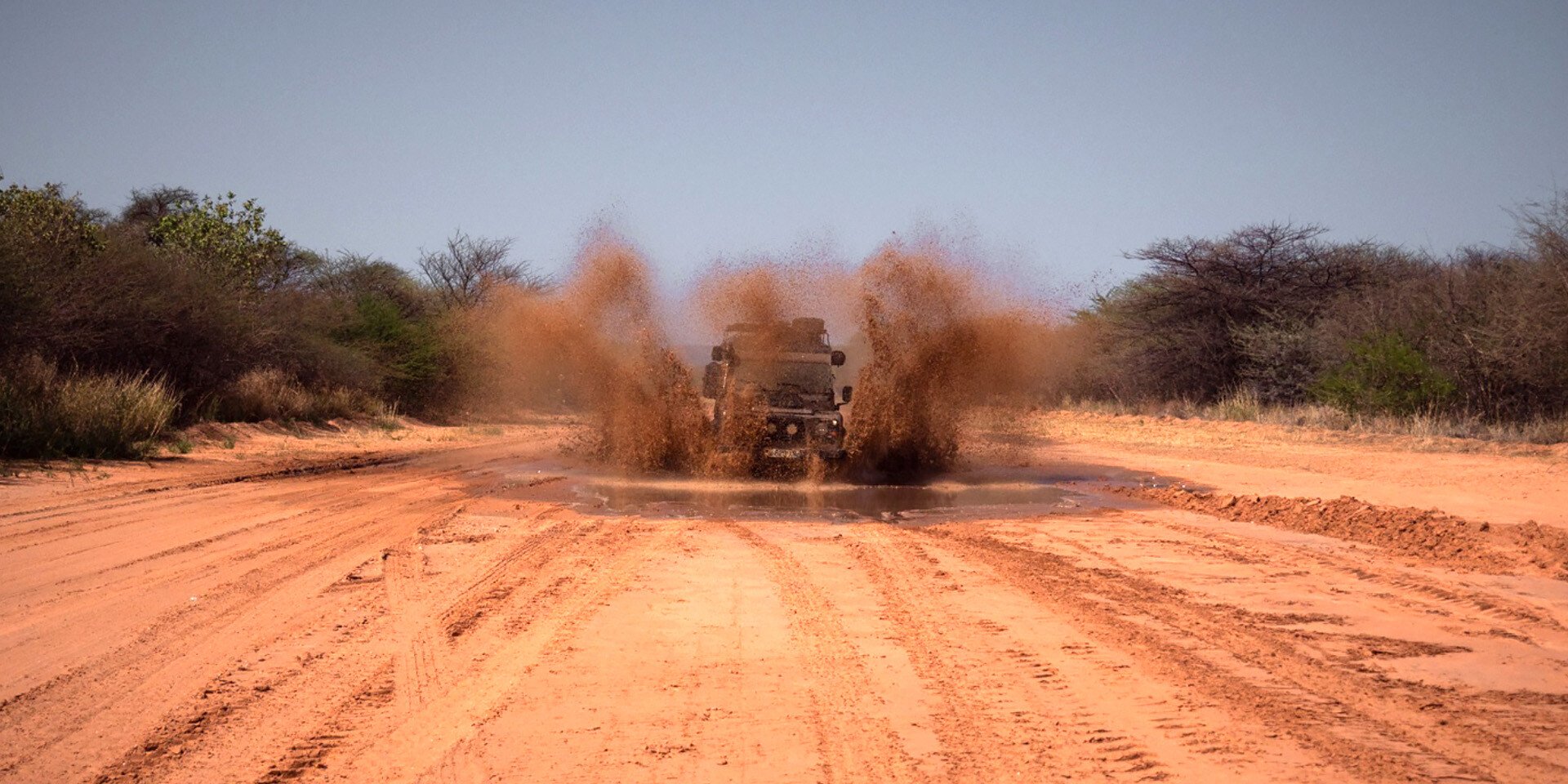Hello, we are Maé and Oré @travelburners, and we have been travelling extensively across the African continent aboard our Land Rover Defender. During this long journey, Namibia has become particularly close to our hearts, and we would like to share some tips with you. Today it's all about you approach to the environment and local communities as well as hygiene standards in Namibia.
Respect for the Environment and Communities
This may seem obvious to most of you, but we still want to say a few words about it. Namibia is a land of nature and wildlife unique in the world. It is one of the few tourist destinations today where litter is rare (outside urban areas) — and believe us, after travelling along the entire West African coast, it’s a real relief.
Moreover, beyond this visual comfort for travellers, remember that animals are everywhere in Namibia, and plastic or paper is not part of their diet. So please, keep the places you visit clean and respect this nature by leaving NO waste behind.

Furthermore, although increasingly rare due to globalization, some local communities (Himbas, Hereros, etc.) still persist in Namibia. These communities are fragile and are deeply attached to their cultural identity, customs, and traditions.
For several years now, relations between foreigners and African tribes have deteriorated. The cause? The fame of some photographers who have "stolen" the faces of people after publishing them in renowned magazines — needless to say, none of these people received any financial compensation.
Today, all these communities are aware of the value their faces, customs, and traditions can hold. Therefore, during your potential visits to villages, it may be that you are asked for money in exchange for a photograph. Whether you accept or not is up to your discretion.
However, it is essential to always ask for permission before photographing someone and to respect the response, even if it is negative. Please respect their privacy and wishes, and never forget that you are not in your own home — just a friendly reminder 😊.
Health and Hygiene
In addition to being a stable and safe country, Namibia does not present any particular health risks, apart from malaria. Rest assured, malaria is not widespread throughout the Namibian territory and is mainly concentrated in the northern regions (bordering Angola) and the northeast (Zambezi region, formerly Caprivi). The risks are higher primarily during the rainy season, which runs from November to June. In addition to a good mosquito repellent and lightweight, long-sleeved clothing, it is recommended to take prophylactic treatment (consult your doctor before departure).
Personally, we have never taken any treatment after more than two years of travelling in high-risk areas, BUT we are extremely cautious when there is a high concentration of mosquitoes. In other words, we use repellent almost daily, essential oils (lavender, citronella), UV lamps in our rooftop tent, an electric racket, and wear long clothing.
Additionally, we recommend protecting yourself from the sun (sunscreen, hats), carrying a first aid kit, and packing basic medications (for headaches, diarrhea, etc.). Consult your doctor or pharmacist for advice.

Finally, after more than three months in Namibia, we have never gotten sick or encountered unsanitary places. In fact, hygiene standards in Namibia are comparable to those in Europe. This is why you will easily find (in the cities) restaurants, supermarkets, and various shops. Additionally, tourist establishments (lodges, campsites, hotels, etc.) are also very well maintained.
To be continued.
This article is part of the series “Overland Namibia” with valuable travel tips:
05/12/2024 Choosing your Vehicle | Plan your Itinerary
19/12/2024 Safety and Preparation | Driving Gravel Roads
02/01/2025 Off-Road Driving | Adjusting the Tire Pressure
16/01/2025 Respect for the Environment and Communities | Health and Hygiene
30/01/2025 Documents and Assurance | Land Border Crossings
Article series written by Manon Glasberg for Gondwana Collection Namibia
Page Instagram: @travelburners
Website: www.travelburners.com

.jpg)


.png?width=203&height=146&name=GTC%20LOGO-01%20(1).png)
SUBMIT YOUR COMMENT